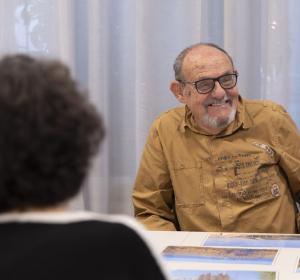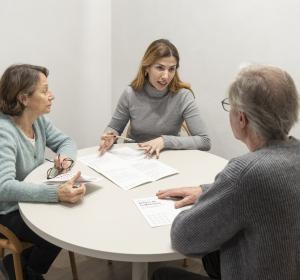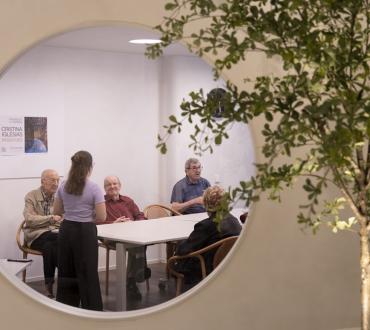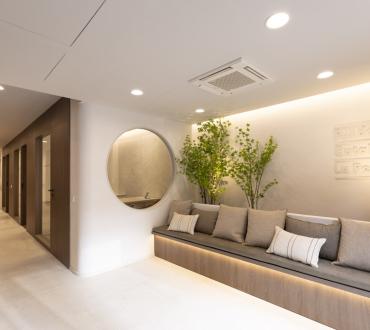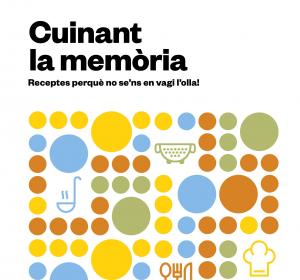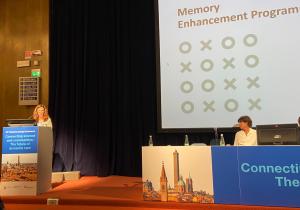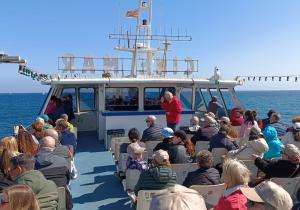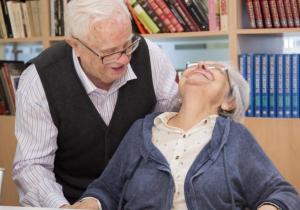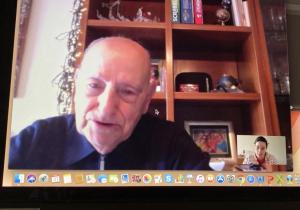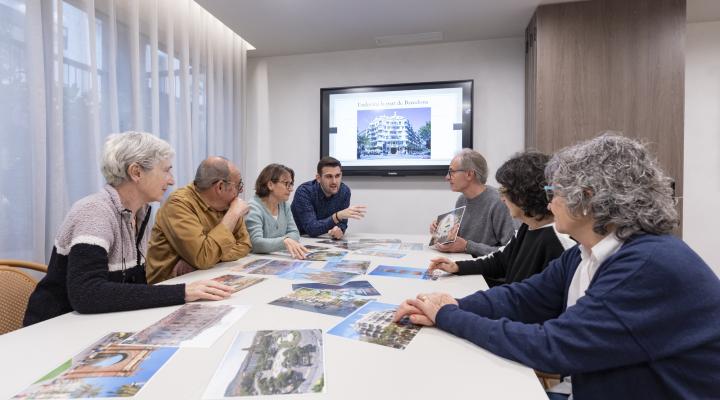
Memory Reinforcement Programme
For older people with Alzheimer's disease and other forms of dementia. We offer them tools and strategies that help them maintain their abilities and improve their emotional state so that they have a good quality of life.
Aimed to elderly people in the early stages of Alzheimer's disease and other forms of dementia
What do we do?
We help participants to:
- Maintain, for as long as possible, cognitive abilities, physical abilities and personal autonomy.
- Ensure emotional and relational well-being.
- Encourage new relationships and social contacts, and prevent or reverse feelings of loneliness.
We are next to relatives to:
- Support them in the family member's illness.
- Provide them with tools and strategies to deal with the disease
How do we do it?
- From a global and integral intervention: cognitive, physical, social and emotional.
- Through meaningful activities chosen by the participants themselves and designed in relation to their interests and life stories. This allows them to stay involved and connected to everything around them.
- With an individualized follow-up where the psychologist collects the preferences of the participant, their life history and, together, they agree on an itinerary of activities. This support gives them the opportunity to stay active by developing strategies to adapt to the new reality.
- Under the model of Person-Centered Care. Participants are the protagonists of their process. We enhance skills instead of focusing on the losses that the disease entails.
- In the framework of non-pharmacological therapies, with non-chemical interventions to improve the quality of life.
Centers where the programme is offered
Our team
Professionals in psychology and neuropsychology, physiotherapy, expression and creativity, and community work specialized in neurodegenerative diseases.
Services and activities for the elderly
We promote activities to maintain cognitive abilities and personal autonomy for as long as possible. We do this from the dynamics of reminiscence, reasoning, memory, language, and the expression of emotions, among others. Activities based on the needs, preferences and life stories of the participants.
It aims to improve general motor skills, maintain an optimal degree of mobility and autonomy, as well as coordination and self-confidence. This activity helps to preserve physical health and, at the same time, fosters relationships with others and group work, making it easier for them to lead an active life for as long as possible.
They promote empowerment, fun, and well-being in a more playful format; recovering hobbies or discovering new ones. At the same time, they encourage interpersonal relationships by avoiding situations of isolation, improving the mood and self-esteem of the participants and encouraging their autonomy.
Through the individual care plan (PAI), the participant and the psychologist analyze what the person needs, and set goals and activities to achieve them until their review in a given time.
Services for relatives
Support throughout the stay in the REMS program on the evolution of the disease, offering tools and strategies to deal with it.
The Therapeutic Aid Group (GAT) is a space for the caregiver, which aims to share with other caregivers, the experience and emotions involved in caring for a person with dementia. We offer innovative dynamics that help to understand the disease, to positively manage emotions and to improve communication between these people.
Complementary services
For participants and their families. It is a support service to help assimilate the diagnosis of the disease, work on strategies to adapt to the new situation and manage emotions, among others.
For participants and their families. It complements the physical activity that is carried out in groups, when the person's situation requires it.
